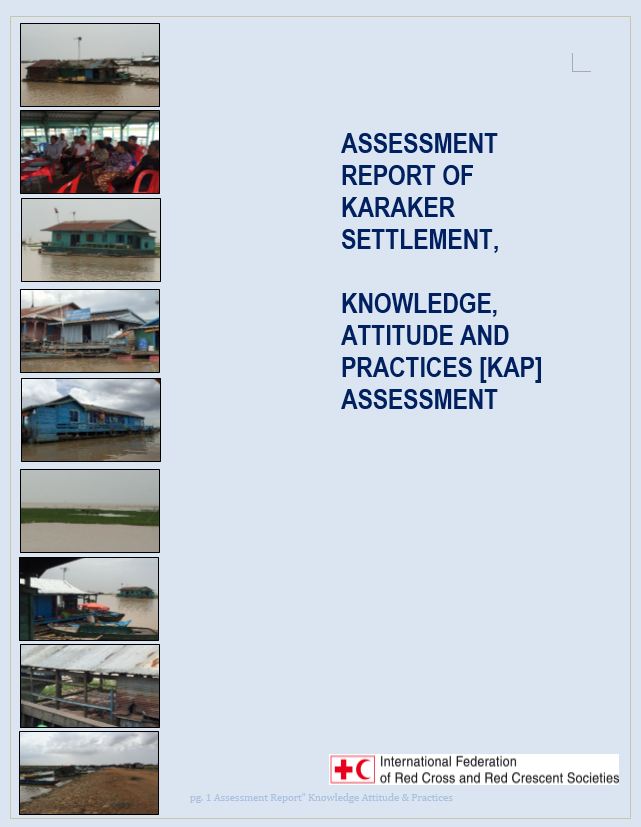The Knowledge Attitude and Practice (KAP) Orientation Workshop was conducted in Vientiane, Lao PDR by ECHO Project Manager – Building Urban Resilience in Southeast Asia project, together with Lao Red Cross’ key people for students and teachers in five schools. This was also the opportunity to meet with the Head of Communications Unit and Disaster Management team.
The main purpose of this meeting was to conduct the orientation workshop on KAP Baseline Survey for the students and to discuss among the different sectors in Lao Red Cross in order to develop the key messages for the Communications Strategy on Public Awareness and Public Education (PAPE). The key discussion topics were as followed:
Preparation Meeting with KAP Consultant and the project team
- Discussion on the KAP methodology design, sample size, contents of the questionaire, data processing method, etc.
- The use of the quantitative tool of the KAP survey for collecting data in the five targeted communities where there is the high school that the LRC is implementing the project.
- This survey is used to interview at the household level because the household is the primary institution consisting of members of families who talk and share with each other the most in daily life.
Orientation Workshop on KAP Baseline Survey
The objective of this workshop was to provide the common understanding on hazards and disasters in the local context and the understanding on the questionnaires and simulation exercise, for 85 students from five schools in Vientiane Capital City.
The Morning Session was on “Knowing the Local Hazards and Disasters in Laos”. The purpose of this session was to provide understanding on the hazards and disasters in Laos’ context in order to collect the data for KAP Survey. Based on PAPE tools, the main facilitator for this session led the session by using the Role Play. The students were into five groups and assigned the hazard topics for each group (Fire, Flood, Earthquake, Land slide and Storm). Each group developed the key messages based on their understanding about the impacts of the hazards in their schools and communities including how to use the community engagement approach in their role play. After the presentations, the facilitator asked the representatives from each group to feedback each other, then invited the teachers and Lao Red Cross (LRC) team to provide feedback also. In conclusion, all students understood about the hazards in their local context.
The Afternoon Session was on “Understanding and Practising on KAP Survey Questionnaires”. The purpose of this session was to provide understanding on KAP Survey’s questionnaires and practice and how to collect the data in the communities. The consultant was the main facilitator for this session, while the project manager and LRC team were the co-facilitators in the simulation exercise. The session started with the introduction on KAP survey methodology and then divided the students into five groups in order to read out loud and understand all parts of the questions. Then, the simulation exercise started by matching them in pairs and practiced how to ask the questions and how to record the answers. Finally, they could give feedback to each other and the teachers also provided the comments.
For more information, see Building Urban Resilience Project.
![]()


